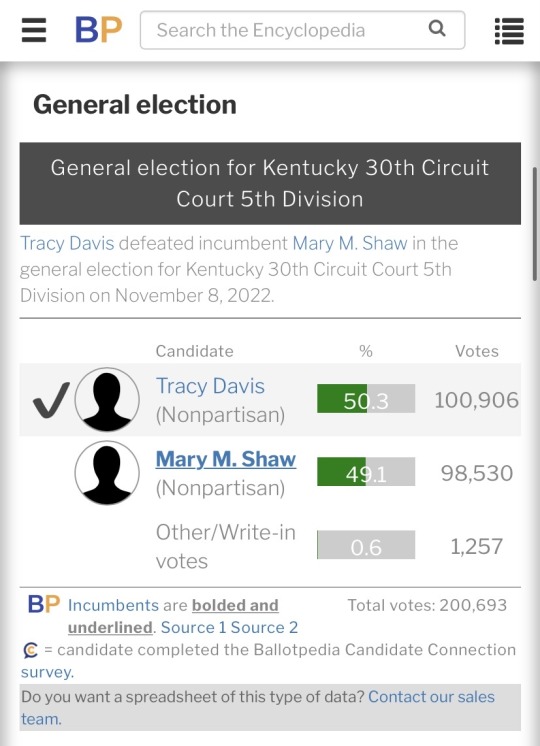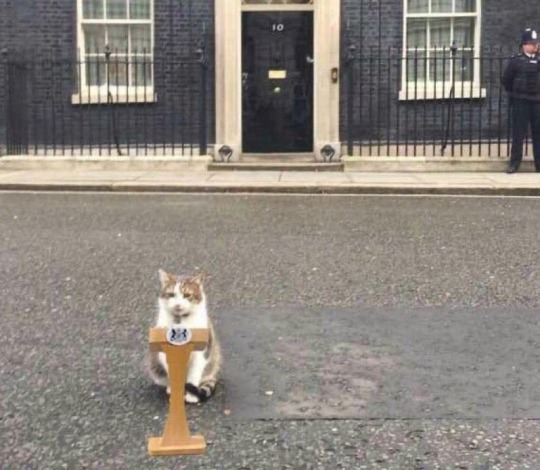#general elections
Text





#judge who signed BreonnaTaylor warrant loses relection#justice for breonna#say their names#say her name#protect black essential workers#protect black women#Kentucky 30th circuit 5th division#local elections#general elections#justice for breona taylor#black lives matter
266 notes
·
View notes
Text

The cover art for THE IDOLM@STER SHINY COLORS シャイニーPRオファー Vol.1 album has been released and the album is set to be released on April 17th 2024. It will feature the full drama of the COSMETICS BRAND TV CM & SONG theme alongside a special drama and solo versions.
Tracklist:
Tr.01 Kagayaki ni Kawaru
Lyrics,Music&Arrange: Kujira
Singer(s): Amana Osaki, Hinana Ichikawa, Mamimi Tanaka
Tr.02 Kagayaki ni Kawaru (Amana Osaki Ver.)
Tr.03 Kagayaki ni Kawaru (Hinana Ichikawa Ver.)
Tr.04 Kagayaki ni Kawaru (Mamimi Tanaka Ver.)
Tr.05 Special Audio Drama "acquired taste"
Tr.06 Kagayaki ni Kawaru (Off Vocal)
22 notes
·
View notes
Text

Cannot make this shit up
#liz truss#uk politics#general elections#conservative party#keir starmer#jeremy corbyn#jacob rees mogg#jeremy hunt
116 notes
·
View notes
Text
So, what kind of vegetable will Rishi Sunak be up against?
59 notes
·
View notes
Text
Undeterred by the pouring rain, a long convoy of motorbikes carrying cheering, flag-waving supporters of Cambodia's ruling party revved their engines in preparation for their triumphant final rally in downtown Phnom Penh.
People dutifully lined the road as far as you could see, party stickers on their cheeks, the sky-blue hats and shirts they had been given to wear getting steadily wetter.
Perched on the back of a truck, Hun Manet, the 45-year-old eldest son of Prime Minister Hun Sen, greeted the crowds proclaiming that only the Cambodian People's Party (CPP) was capable of leading the country.
Indeed, his father had made sure that the CPP was the only party which could possibly win the election.
Hun Sen, 70, has run Cambodia in his trademark pugnacious style for 38 years: first in a Vietnam-installed communist regime, then under a UN-installed multi-party system, and more recently as an increasingly intolerant autocrat.
The only party now capable of challenging his rule, the Candlelight Party, was banned from the election on a technicality in May. The remaining 17 parties allowed to contest it were too small or too little-known to pose a threat.
A few hours after the polls closed, the CPP claimed the expected landslide, with a turnout of more than 80%. There were quite high levels of spoiled ballot papers in some polling stations: that was probably the only safe way voters could show their support for the opposition.
With Hun Manet expected to succeed his father within weeks of the vote, in a long-prepared transfer of power, this felt more like a coronation than an election.
"I don't think we can even call it a sham election," says Mu Sochua, an exiled former minister and member of the CNRP, another opposition party banned by the Cambodian authorities in 2017.
"We should call it a 'selection', for Hun Sen to make sure that his party will select his son as the next prime minister of Cambodia, to continue the dynasty of the Hun family."
Yet there were signs of nervousness in the CPP before the vote. New laws were hurriedly passed criminalising any encouragement of ballot-spoiling or a boycott. Several Candlelight members were arrested.
"Why was the CPP campaigning so hard, against no one in this election with no real opposition?" asks Ou Virak, founder of the Cambodian think tank Future Forum.
"They knew they would win the election - that was an easy outcome for them. But winning legitimacy is much more difficult.
"They need to keep weakening the opposition, but at the same time, they also need to satisfy the people, so there is no repeat of previous setbacks and disruptions, like street protests."
Hun Sen is one of Asia's great survivors, a wily, street-smart politician who has time and again outmanoeuvred his opponents. He has skilfully played off China, by far the biggest foreign investor these days, against the US and Europe, which are trying to claw back lost influence in the region.
But he has come close to losing elections in the past. He is still vulnerable, to rival factions in his own ruling party, and to any sudden downturn in the Cambodian economy which could sour public opinion against him. So as he prepares for a once-in-a-generation leadership change, he is trying to cement his legacy.
A short drive north of the capital, a 33m-high concrete-and-marble monolith was built recently, which he calls the Win-Win memorial.
Its massive base is covered in carved stone reliefs, echoing Cambodia's greatest historic monument, Angkor Wat.
They depict Hun Sen's flight from Khmer Rouge-ruled Cambodia to Vietnam in 1977, his triumphant return with the invading Vietnamese army in 1979, and his eventual deal with the last of the Khmer Rouge leaders in 1998 that ended the long civil war - his win-win for the Cambodian people.
Delivering peace and prosperity has long been Hun Sen's main claim to legitimacy. Since 1998, Cambodia has had one of the world's fastest-growing economies, albeit from a very low base.
But it is a model of growth which has concentrated wealth in the hands of a few families - the number of ultra-luxury cars on the roads of such a low-income country is jarring. It has encouraged rapacious exploitation of Cambodia's natural resources and it has left many ordinary people feeling that they are not winning under Mr Sen.
Prak Sopheap lives with her family at the back of an engine repair shop, squeezed between the main road and one of the many shallow lakes in the low-lying land outside Phnom Penh. They have been there for 25 years, fishing and cultivating vegetables on the lake.
Today, though, much of the lake has been filled with rubble by a property developer and Ms Sopheap's family have been ordered to leave.
She showed me a document from the local council, confirming how long she had lived there, and another document, a summons to court on a charge of illegally occupying state land. She feels powerless and angry - and she is not alone.
Land disputes are among the most incendiary grievances in Cambodia. All property deeds were destroyed in the Khmer Rouge revolution.
Since the end of the civil war, millions of hectares have been allocated for commercial development, a lucrative arrangement which has made many politicians and businesses allied to Hun Sen very rich.
The courts very rarely rule against these powerful interests. Transparency International ranks Cambodia as 150th out of 180 countries for corruption: in the Asia-Pacific region, only Myanmar and North Korea rank lower.
"Hun Sen always talks about his 'win-win policy'", says Ms Sopheap. "But we feel it is he alone who wins. We cannot feel at peace, as we now face eviction. We, the real Cambodian people, who live on this land, are suffering in the name of development."
Those who have tried to campaign against land grabs and evictions have been harassed, beaten and jailed, as have trade unionists and supporters of opposition parties. I asked Ms Sopheap how she would vote in this election. "Who can I choose?" she asked. "Who can protect me?"
Half of those eligible to vote are under 35 years old. The CPP has tried attracting them by having Hun Manet and other younger party leaders run this year's campaign, with a slick social media strategy.
But as most Cambodians have no memory of war or the Khmer Rouge, Ly Chandravuth, a 23-year-old law graduate and environmental activist, says the old CPP campaign points are no longer persuasive.
"Hun Manet's biggest challenge will be that my generation is very different from previous ones, who were traumatised by the Khmer Rouge," he says.
"Since I was a child, I have watched the ruling party reminding us of that tragedy, telling us that as they brought peace, we should support them. But that argument is less and less effective. Every time the ruling party brings it up, the young generation mocks them, because they have been repeating it for 30 years."
Can Hun Manet modify the rough-house, sometimes thuggish leadership style of his father to a softer and more subtle kind of rule? Despite his Western education, his years heading the army and his long apprenticeship, he has never yet held a top political office.
With him, other "princeling" sons of Hun Sen's contemporaries, such as Defence Minister Tea Banh and Interior Minister Sar Keng, are also expected to replace their fathers in the cabinet - a dynastic shift which keeps the levers of power with the same families, but in less experienced hands. The next few years could be a delicate, even dangerous time for Cambodia.
13 notes
·
View notes
Text
bruh, the NERVE BJP has to advertise on tumblr
3 notes
·
View notes
Text
Oh get the fuck outta here
3 notes
·
View notes
Text
Currently 4.3 times as many people have signed this than have a say over who the next prime minister is. People of the UK, and those governed by the UK, we HAVE to make our voices heard. We cannot continue with the present government. Please sign and share. Non UK friends, please share this as widely as we circulate information about your governments.
#british politics#petition#omnishambles#general elections#tories out#liz truss#uk politics#boris johnson
15 notes
·
View notes
Note
Jeg fucking sværger hvis nørrebro og vesterbro ikke snart tager sig sammen og bliver færdige med at tælle vil jeg ******* ** ******* *** *** ***** *****
Big mood, admiralen sad med hovedet under tæppet som en struds og skreg indtil de endelig blev færdige!
12 notes
·
View notes
Text
A fascist party, founded by nazis, became the second largest party in Sweden's general election that was held yesterday.
Three of the right wing parties, including one the calls themself liberal, has already agreed to cooperate with the fascist party. Just like von Papen they believe they can control them. At the moment the fascist/right wing alliance is in the lead
Some facts about the fascist party:
The current leader became a member when it was still runned by wwii-nazis.
They have old skinhead nazis among the party leaders
They claim that jews and the indigenous people can't be swedish
They want to repatriate immigrants
They want to revoke the citizenship from anyone that's not loyal to sweden (read; to the party)
They want to control media and every aspect of our cultural life
They use phrases like "victory or death"
They run a kind of troll-factory to bully, threaten and silence their political opposition online
If it can happen here in Sweden, it can happen anywhere. "Don't waste any time mourning. Organize!"
youtube
4 notes
·
View notes
Text


The featured unit of the event is an unnamed unit featuring idols who ranked in the Top 5 of the Stage for Cinderella event. The group of idols are often labelled as CINDERELLA GIRLS TOP5.
This unit consists of Eve Santaclaus, Shiki Ichinose, Aiko Takamori, Kaede Takagaki and, Hayate Hisakawa
#deresute event#general elections#unit#eve santaclaus#shiki ichinose#ichinose shiki#aiko takamori#takamori aiko#kaede takagaki#takagaki kaede#hayate hisakawa#hisakawa hayate
27 notes
·
View notes
Text
Just learned truss resigned
On one hand omg yes the person trying to apply Reaganomics in Britian is gone
On the other hand
please Britian just have a general election please this is the third one in a row that's resigned
#british government#british politics#liz truss#tories#conservative party#general elections#please#reaganomics#trussonomics#another one bites the dust#Three In a row?!??#So soon too#Not like I didn't see this coming#I did#But please have a general election for petes sake
5 notes
·
View notes
Text
Breaking News
Larry the Cat has announced that he has had enough of the shit show that is UK politics and will be stepping in as Prime Minister

#uk politics#liz truss#larry the cat#general elections#conservative party#jacob rees mogg#labour party#jeremy corbyn#keir starmer#ed miliband#jeremy hunt
45 notes
·
View notes
Text
It's Malaysia's general election today and it's my first time voting! 🇲🇾🗳️

4 notes
·
View notes
Link
A year after Nobel Peace Prize winner Jose Ramos-Horta reclaimed the presidency, other familiar faces are hitting the campaign trail in the lead-up to a crucial parliamentary poll, which will determine who forms government.
Not for the first time, the poll has been cast as a showdown between independence hero Xanana Gusmao’s National Congress for Timorese Reconstruction (CNRT) and Mari Alkatiri’s Fretilin. There is a great deal at stake.
In the backdrop is the country’s unsteady reliance on natural resources, a plight highlighted by the projection that its petroleum-based sovereign wealth fund, which pays for more than 80 per cent of state spending, will run dry in a decade.
Gusmao, the former guerrilla fighter and Timor-Leste’s first president, is seeking to return his party to power, championing his long-held vision of piping liquified natural gas from the $50 billion Greater Sunrise fields to the country’s south coast in a bid to secure its economic prosperity.
It’s a cause that has also been taken up with gusto by Ramos-Horta since he became president again with the backing of Gusmao and CNRT, by hinting that the country could turn to China if Australia and commercial partner Woodside Energy insists on processing gas in Darwin instead.
The potential geopolitical ramifications mean Canberra will be watching the May 21 election particularly closely.
Polls are also looming large elsewhere in South-East Asia.
Thailand is gearing up to vote next month, Cambodia will follow in July while in Malaysia, the tenuous grip of Anwar Ibrahim’s coalition government may be put to the test by the results of half a dozen coming state contests.
The pace is also starting to pick up in Indonesia’s 2024 presidential race, with a likely field of three candidates taking shape.
There are asterisks of varying size that can be applied to some of this year’s elections.
In Thailand, for instance, the game is stacked against opposition groups attempting to overcome pro-army parties before a ballot has even been cast.
Pheu Thai, the party associated with former prime minister Thaksin Shinawatra and fronted by his 36-year-old daughter, Paetongtarn, is predicted to capture the most seats in the 500-member parliament on May 14.
But the appointment of a 250-strong, military-aligned senate that also has a say on the leadership makes it an uneven playing field from the outset. That’s without even considering the spectre of a military coup, a far from uncommon occurrence in Thailand when the armed forces don’t get their way.
As for Cambodia, opposition voices have been drowned out by intimidation and prosecution to such an extent that Hun Sen’s ruling party, which holds all 125 seats in parliament, doesn’t face a real challenge.
There is also an election on the cards this year in junta-controlled Myanmar, but it’s widely anticipated to be a sham.
In such a field, Timor-Leste certainly stands out from the pack.
“This is the most vibrant democracy in South-East Asia by a long way,” said Swinburne University of Technology professor Michael Leach. “The Timorese fought for their democracy in a way that many other countries did not, and they value it accordingly.”
While the old guard again take centre stage, young people will have a big role in the outcome. The median age in Timor-Leste is 21 and roughly 15 per cent of an estimated 900,000 registered voters will be first timers. Importantly, it is also the first time people born after the restoration of independence in 2002 will be old enough to vote. They must choose representatives for all 65 seats in parliament, with a 33-seat majority needed to govern.
They will do so with issues such as high youth unemployment, poverty and poor infrastructure and services still major problems, despite the billions of dollars in revenue collected from oil and gas in the past two decades.
“On the streets of Dili the Timorese experience is increasingly defined by a blend of pride and frustration,” said University of Adelaide anthropologist Michael Rose.
“It’s a busy place of big families, small farms and deep roots, but although work is rarely hard to find, a regular salary is.
“Many seek to go abroad, but without a functioning economy at home, the money they remit back into the family networks can only make so much difference.”
Age dictates this may well be the last campaign for Timor-Leste’s perennial protagonists, including 76-year-old Gusmao, who is revered for his struggle against Indonesian occupation.
But with their country’s economic future on the line, it is the generation who have grown up in peace and who will have to deal with the decisions made today.
6 notes
·
View notes
Photo

Get some rest, stay hydrated, bring your IC, bring a chair and/or umbrella if you need
3 notes
·
View notes